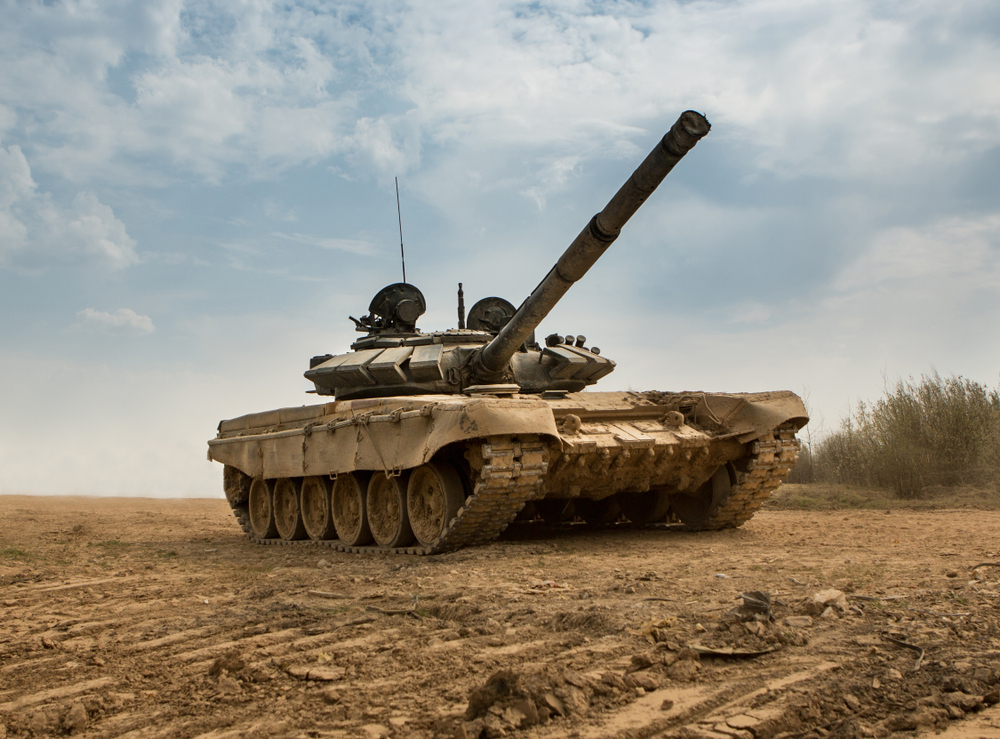
Delays and Challenges Threaten German-Polish Agreement.
Shutterstock/ Alexey Soloukhin
Delayed Tank Repair Workshop Puts German-Polish Agreement at Risk
AN agreement between Germany and Poland to establish a joint tank repair workshop in Poland for damaged German Leopard battle tanks from the war in Ukraine has hit a roadblock. Although the first tanks requiring repairs have arrived in Poland, the workshop is not operational. The delay is attributed to various challenges, including contract finalisation, distribution of profits, spare parts availability, and concerns about the impact on other military projects. The negotiation process is further complicated by existing tensions between the two governments and ongoing election campaigning in Poland.
Obstacles to Operation
Delayed Contract Finalisation: Despite an initial announcement in April by German Defence Minister Boris Pistorius, a formal contract outlining the consortium’s collaboration has yet to be finalized. The involved parties—German tank manufacturers Rheinmetall and Krauss-Maffei Wegmann (KMW) and Polish state-owned manufacturer PGZ—still need to agree on terms and conditions.
Profit Distribution and Technical Contributions: The negotiation process includes determining how profits will be shared among the consortium members. Additionally, the parties need to allocate specific technical contributions and establish fair pricing for their services.
Spare Parts Complications: The maintenance of Leopard tanks requires careful coordination regarding the availability and responsibility for spare parts. Polish Prime Minister Mateusz Morawiecki recently mentioned a shortage of spare parts, which adds to the challenge of repairing the tanks. Polish suppliers such as PCO and the WB Group possess the necessary spare parts, but this creates competition with German companies.
Location Concerns: Selecting suitable locations for the repair workshop has become a point of contention. Polish companies fear that German-Polish projects may restrict the activities of international weapons development facilities in Poland. For instance, the repair of German Panzerhaubitze 2000 artillery systems originally reserved for the Polish “Krab” howitzer has now been tied to a Polish location. Poland aims to avoid any restrictions on existing centres for South Korean and Polish K2 tanks and US Abrams tanks in Poznan
Implications and Political Context
Potential Benefits for Polish Defence Industry: Poland has ordered large numbers of American Abrams tanks and Korean K2 tanks to modernise its armed forces. Assuming the maintenance of the K2 tanks takes place in Poznan, the Polish defence industry would greatly benefit from this collaboration.
Negotiating Patriot Missile Deployment: The stationing of German Patriot missile defence systems on the Polish-Ukrainian border presents another challenge. Polish defence Minister Mariusz Blaszczak expressed a desire for the Patriots to remain in Poland until at least the end of the year. It is possible that negotiations on the Patriot missile deployment and the tank repair workshop will be interconnected, suggesting a potential trade-off between Germany and Poland.
Tensions and Political Implications: The negotiations occur against the backdrop of already strained relations between the German left-leaning government and the conservative, nationalist Law and Justice (PiS) government in Poland. Divergent viewpoints on migration, energy, and military support for Ukraine have further exacerbated the differences between the two governments. Additionally, with election campaigning underway in Poland, the government in Warsaw has adopted a more confrontational stance toward Berlin to gain domestic political advantages.
The establishment of the German-Polish tank repair workshop, aimed at fixing damaged Leopard battle tanks from Ukraine, has faced significant delays. Challenges related to contract finalisation, profit distribution, spare parts availability, and concerns about other military projects have contributed to the impasse. Moreover, strained relations between the German and Polish governments, along with ongoing election campaigning, have added further complexity to the negotiations. Resolving these issues promptly is crucial to ensure sustainable support for Ukraine and maintain bilateral cooperation between Germany and Poland.
Stay connected with us on social media platform for instant update click here to join our Twitter, & Facebook
We are now on Telegram. Click here to join our channel (@TechiUpdate) and stay updated with the latest Technology headlines.
For all the latest World News Click Here
